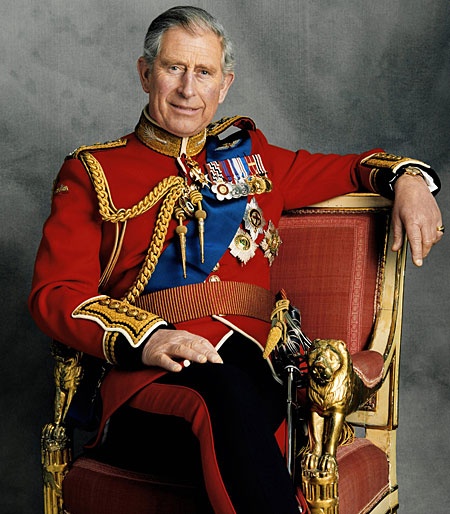
In his book, Harmony, Prince Charles urges mankind to protect our planet and respect others. Though the book was recently written, its philosophy mirrors the ancient tribal wisdom of the Long Riders.
HRH, The Prince of Wales
|
|
In his book, Harmony, Prince Charles urges mankind to protect our planet and respect others. Though the book was recently written, its philosophy mirrors the ancient tribal wisdom of the Long Riders.
|
The author presented the second set of the Encyclopaedia to HRH, Prince Charles, who exerted a tremendous philosophical influence upon the creation of the books.
In his letter to HRH, Prince Charles, the author wrote, “From a purely practical point of view, The Encyclopaedia of Equestrian Exploration is a book containing hundreds of pages of sensible wisdom gained from the travels of the greatest equestrian explorers.
Yet it is also a map to the inner way and you are the one who guided us.
The wise Long Rider knows he is setting off on two journeys, the external and the interior, that he will be required to travel along the parallel streams which run through every equestrian journey, the practical and the philosophical. Both require careful study. A few books have addressed the practical aspects of horse travel. But no one has examined the philosophical side. The Encyclopaedia of Equestrian Exploration doesn’t just tell you how. It reveals why.
Whereas I searched the world for endangered equestrian wisdom, I make no claim to being the source of the Encyclopaedia‘s spiritual inspiration. That part of the work is based upon the teachings of your book, Harmony.
Your philosophical influence can be detected throughout the three volumes.
In your book you warned about the need to develop “a new way of looking at our world” and challenged “the accepted wisdom, the current orthodoxy and conventional way of thinking.”
The Encyclopaedia explains how Long Riders such as Charles Darwin, Jonathan Swift and Oscar Wilde represent the humans who rode away from social restrictions, questioned society’s practices and would endorse your message.
You warned that mankind’s “exploitative relationship with Nature cannot last.”
This admonition is endorsed by the Long Riders’ Guild, which does not award silver trophies or charge a fee for its services. The Encyclopaedia urges readers instead to beware of competition, nationalism and commercialism.
You explained that “The ancients were exploring what lies at the very core of life – the element that makes it sacred.”
The Encyclopaedia reveals that a person is admitted into the Guild after having ridden a minimum of one thousand miles on a journey that reconnects them with Nature and encourages them to explore their own souls.
You wrote, “What may we not expect from the acquired knowledge of past generations.”
This wise counsel deeply affected me because my research confirmed that precious knowledge, gleaned from humanity’s collective experience throughout millennia, was in danger of being swept away by the winds of change.
As these examples demonstrate, the Encyclopaedia was profoundly influenced by your teachings.
Yet your philosophy is expressly stated in the Epilogue, wherein I urge the reader to examine the issues that confront us all as human beings. Therein I quote you directly and explain the need for a shift from consumption to conservation. I urge readers to forego the domination of the horse and to work towards the welfare of all life. I conclude by urging Long Riders to change the world for the better.
That message, based upon your philosophy, is already in the saddle and being carried across the globe.
Kimberley Delavere is a young Long Rider who just completed a solo journey along Australia’s Bicentennial National Trail.
Having read the Encyclopaedia’s Epilogue, Kimberley stated that she is committed to “what Prince Charles has written. We have to begin ‘on an individual level, with change in our own lives’. That is why I am seeking harmony in my life and in the saddle.”
Kimberley is one of those Long Riders who have embraced your strong argument that humanity needs to protect our planet, not exploit it, that we need to use the concept of harmony to enrich our personal lives, protect our local community and encourage positive change on a global scale.
I am writing to explain that your philosophical message resonated so strongly that the full title of my book reads:
The Encyclopaedia of Equestrian Exploration - A Study of the Geographic and Spiritual Equestrian Journey, based upon the philosophy of Harmonious Horsemanship.
|
|
Tony Juniper, is a leading British environmentalist and the Senior Adviser for The Prince of Wales’s International Sustainability Unit. Writing to the author on behalf of Prince Charles, Mr. Juniper said, “His Royal Highness was most grateful for your kindness, not only for sending him a complete work on what is, as you say, a neglected subject, but also for your very kind words concerning the ideas he set out in Harmony. I know that he has been enormously encouraged to know that at least some people have seen the sense of what he has for years been getting at, and applying some of the ideas he wrote about in different spheres, including now, we find, in relation to long distance journeys on horseback!....I know that His Royal Highness is most encouraged to know that you were inspired to weave some of the ideas in Harmony into your own work and I hope that as a result of what you have achieved a few more eyes will be opened as to the interconnected web that sustains us all, not least through capturing and preserving what was for centuries common knowledge.” |